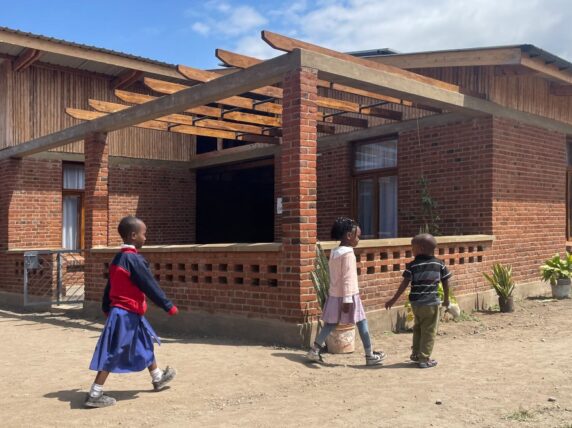Global Disability Summit: 4 actions to further inclusion
The Global Disability Summit and Civil Society Forum was hosted by DFID, the Government of Kenya and the International Disability Alliance (IDA) on 23 and 24 July, in London’s Queen Elizabeth Olympic Park.
It was the first of its kind and sought to raise global attention on disability, mobilise commitments to remove barriers faced by people with disabilities, and to showcase good practice and innovation that will benefit the lives of the one billion people with disabilities, 800 million of whom live in low and middle-income countries.
Over 800 people from disabled persons organisations (DPOs), governments, international institutions, NGOs and the private sector descended on the Olympic Park, to listen to speeches on stigma and discrimination, access to education, economic empowerment, the role of technology and innovation, women and girls with disabilities, and disability in humanitarian contexts.
However, much of the hard work had been done in the ascent to the summit (including input into shaping commitments, and a parliamentary reception, by Bond members) and delegates were invited to sign the Charter for Change and submit commitments ahead of the day. By the end of summit day, 170 commitments were in place from national governments, multilateral organisations, NGOs such as Bond and members and private sector organisations. These commitments will be available for all to see online and in her closing speech secretary of state Penny Mordaunt promised “over the next year, progress against the commitments will be monitored and a progress report will be published in 2019 to show how far we have come”; although she stopped short of any commitment to further summits.
DFID also used the summit to make a series of announcements, including:
- a UK-Kenya Strategic Partnership to economically empower people with disabilities in Kenya
- the “AT Scale” partnership on access to assistive devices
- the UK Aid Connect programme to support people with disabilities access jobs
- a new Global Data Portal on disability
- and a commitment to end the institutionalisation of children with disabilities.
The CDC – the UK’s development finance institution ‚Äì “will change the way they work, so that disability inclusion is at the heart to the companies they fund”; and DFID will also update its Disability Framework later in the year.
Subscribe to our newsletter
Our weekly email newsletter, Network News, is an indispensable weekly digest of the latest updates on funding, jobs, resources, news and learning opportunities in the international development sector.
Get Network NewsThere was much to be welcomed from the Disability Summit and its hashtag #NowIsTheTime. Now is the time to build on summit momentum and use the commitments and Charter for Change to further the rights of people with disabilities.
The commitments made at the summit are hugely important; and within current global narratives around disability and development, there are a number of key asks we can note:
- Be led by people with disabilities, and their representative organisations, in development processes that impact them.
- Recognise diversity and intersectionality of people with disabilities: the impact of discrimination on the grounds of other characteristics, such as gender, age, race, belief and sexuality, may further marginalise people with disabilities. Policies and development initiatives need to challenge these multiple discriminations.
- Implement international agreements and standards: the CRPD is the cornerstone of global standards on the inclusion of people with disabilities and sets out principles including non-discrimination, equality of opportunity and accessibility. The Sustainable Development Goals also set out specific targets across a number of goals, to ensure the inclusion of all people with disabilities.
- Commit money and resources to inclusion: always the final call, but the call that turns carefully honed words into reality. Global financing processes need to leverage disability inclusive development; national budgets need to factor in universal design (whereby no one is excluded from facilities or services because of an impairment); and donors and the private sector need to understand the value for money of inclusion.
Most importantly, this summit needs to be the start of something, not simply the destination of months of hard work.
Category
News & ViewsThemes
Disability and Inclusion



